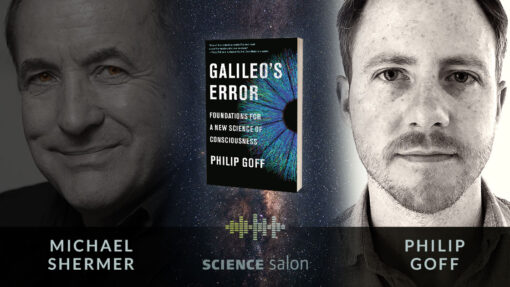
Ever since the Enlightenment philosopher David Hume outlined the “Is-Ought” problem—that we cannot derive an ought from an is, or we cannot determine the way something ought to be morally based on the way things are in nature (the classic example being slavery—because ants practice slavery that doesn’t make it natural and therefore acceptable for humans to practice slavery)—people have struggled to figure out on what basis should moral values be grounded. Of course, theists argue that God is that…

Shermer and Goff discuss: the problem Galileo’s approach to science solved • dualism, monism, panpsychism • idealism • hard problem of consciousness • ultimate nature of reality • model dependent realism • Arthur Stanley Eddington and Bertrand Russell build panpsychism back into science • philosophical zombies • free will, determinism, compatibilism • objective moral values • fine tuning and the multiverse.
In Science Salon # 142 Michael Shermer speaks with Philip Goff about his new book Galileo’s Error: Foundations for a New Science of Consciousness. PLUS, we celebrate Carl Sagan’s birthday; he would have been 86 years old today.










